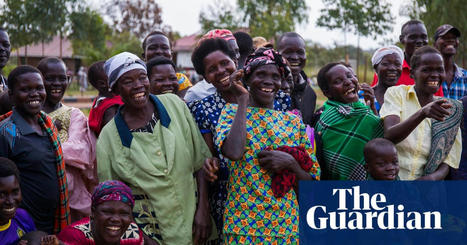Ojok Okello is transforming his destroyed village into a green town where social enterprises responsibly harness the shea tree
Research and publish the best content.
Get Started for FREE
Sign up with Facebook Sign up with X
I don't have a Facebook or a X account
Already have an account: Login
A collection of articles relating to the 'international' elements of Economics and relating to IB, Pre-U and A-Level Economics.
Curated by
Graham Watson
 Your new post is loading... Your new post is loading...
 Your new post is loading... Your new post is loading...
|
|











A really heart-warming story about how the actions of individuals can make a difference to development. The investment of a Ugandan development expert into his own community has allowed it to harness solar power, given it access to clean water and encouraged it to make the most of the shea trees in the vicinity to enhance its developmental prospects, in a sustainable fashion.
Not only is the population of Okere City growing, but outcomes for its citizens measured by access to public services, and community engagement have been significantly enhanced.